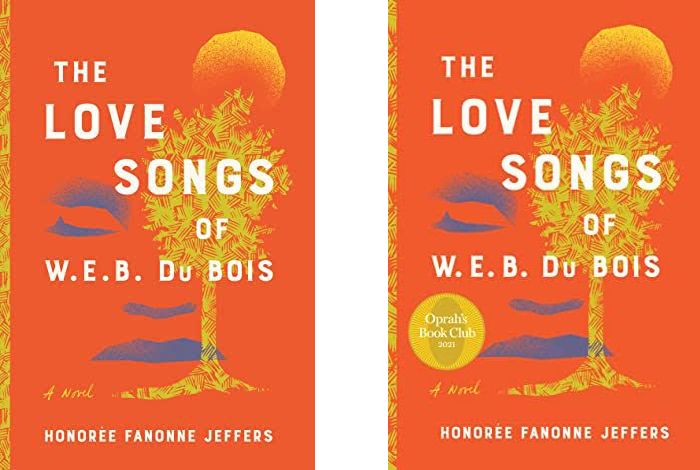
It’s Time To Let These Publishing Trends Die
I started writing this with the intention of writing about some ridiculous and/or silly trends publishing should let die — but it was honestly difficult to take that tone with the amount of trends I very much, for very good reason, want to stop. Okay, so one of these really doesn’t matter, but it visually bugs me and makes my brain twitch every single time, so that obviously had to be on the list. And another just pisses me off because spoilers! But the rest are things I’d really like to see publishing have a long hard sit down and chat over and actually do something about. So here are the publishing trends I want to see die — at the time of writing this. I know the second I submit this, I will think of something else.
Zero Expertise, Zero Fact Checking
There’s been a lot of conversations about social media granting large platforms for people with zero expertise, pseudo science, misinformation to get their message out and the harm it’s doing. Publishing also offers the potential for a large platform, and when it comes to nonfiction, “authors, not publishers, are responsible for the accuracy of nonfiction books.”
Let’s say I believed laying naked in my backyard every morning to get sun on my bits where the sun is not supposed to shine offered me the full level of vitamins my body needs for proper health for a full 24 hours. If I was offered a book deal in which I shouted how healthy this was, should I really be the only person in charge of making sure I am being factual? I mean yes, if I believed this nonsense then in my mind I would be being factual — but with zero evidence and plenty of contrary medical and science information, there should really be more in place to keep me from publishing a book to convince other people to up their risk factor of skin cancer on their genitals.
Publishing is a business and so the reason of course is given that it costs too much money for fact checking. Put the liability and responsibility on the authors and wash your hands of it. A terrible stance, with plenty of ways to go wrong — including plagiarism, which is once again in the news. Publishers of nonfiction should have built-in, on top of the author’s fact-checking, a review process by people trained in fact-checking. Books take time to go through the process from writing to ready to purchase; there is no excuse to not have within all that time a safety net to check for inaccuracy, pseudo information, and evaluate sources.
People’s Humanity Is Not Debatable
This feels like it’s in the same ballpark as above, or has overlapping issues (especially with zero facts), but it really feels like it needs its own section. Publishing often plays the card of “if we publish these voices we must publish the counter voices.” If Mr. Meow published a book on cats being the best pet, publishing a book by Mr. Woof that claims dogs make better pets is not the same thing as publishing a book by a xenophobe attacking immigrants because an immigrant published a memoir. People’s humanity is never up for debate.
Book Club Pick Covers
I love book covers. Not only do you get this amazing book to read, but it comes with a little mini work of art. Sometimes the colors used are just so perfect I wish I had an outfit to match. Or — more times than I should admit — I want to lick it for how delicious it looks. I can zone out and stare at a cover I love for a few minutes and feel my stress start to melt away. All of this is to say, I absolutely hate book club stickers being added to book club picks. I get it. I don’t need a lesson on marketing. I still hate it and honestly can’t imagine that a better solution can’t be created — maybe a bookmark that folds over the top of the cover like those magnetic animal ones on etsy?

Look at the cover of Honorée Fanonne Jeffers’s The Love Songs of W.E.B. Du Bois before and after it was picked by Oprah’s Book Club. I mean, the face now has a gigantic blob on it that says Oprah. No offense to Oprah, but no thanks. Whether it’s a physical sticker that is stuck on or it’s actually added to the cover art and printed on, I hate the intrusion into what was originally designed.
“Clean”/”Wholesome” Book Tags
I obviously have zero issue with books that don’t contain swearing or sex on the page. Just because I personally love an f-bomb and don’t have any issue with sex in books doesn’t mean that I am incapable of understanding that people can dislike what I like, and vice versa, and all the things can exist in harmony. Just grab the things you like and leave the ones you don’t. Simple. My issue is the terms used. They are not accidental; this is publishing after all, and words absolutely matter and are taken into account deliberately. Not only do terms already exist like “closed door” to mean no sex on the page, but every single person understands the ratings G, PG, PG-13, and R. There is absolutely no reason to choose moral judgement language to imply that one thing is “clean” and the rest is thus dirty, impure, and immoral.
White Narrators Voicing Characters Of Color In Audiobooks
This should be self explanatory. So much so that it shouldn’t even exist, yet here I am trying to understand why I have had to stop listening to so many audiobooks for making this choice. Let me eliminate the “but” from the get go: multicast, bilingual, and narrators of color all exist. This is why it’s so hard to not feel like this is a choice that audio productions are making when they do this. I don’t care if a white guy from New Jersey who shares zero Jamaican ancestry thinks he’s perfected a Jamaican accent. I don’t care if a non-Latinx thinks they are doing a great imitation of a Puerto Rican accent or spent hours learning how to pronounce three sentences in Spanish. They are all a big fat no. So are stereotypical voices of races, cultures, and ethnicities. And someone please explain to me why a narrator is doing an “accent” for a character when the text never says the character has an accent? The world does not need more stereotypes, racism, or xenophobia.
Oh Look, Another Gone Girl or Get Out Comp
It is a truth universally acknowledged, that a single thing that makes a lot of money will be copied to death as everyone tries to jump on the money train. This is why two things always happen after something goes super popular ($$): everyone wants to make the next X, and everything gets compared to X regardless of accuracy. My biggest issue with these two titles in particular is simple: it gives away the literal ending of the book! Romance readers read the genre in part because they are guaranteed a HEA. Knowing that about the ending is part of the appeal. The crime genre is on the opposite spectrum of this. Do not spoil a twist. Do not spoil the ending. Both these comps are handing someone the book and telling them the literal actual twist/ending. Stop it! I get that both did new things in genres, and that’s great, but use the genre tags to find the audience. It’s for fans of Get Out? Social thriller and social horror is right there! Gone Girl? Domestic thriller, “unlikable,” twisty, unreliable…See the beauty about “unreliable” is it can go either way: books are set up to either make you think they’re unreliable and turn out not to be or maybe they do. Hence, still enough of a mystery to not spoil the book. Please, stop spoiling mystery and horror books.
Now as for a recent trend that is all the likes, give me more? Romance novels with baking competitions. Mmhm, yum yum. Also, I’ve been seeing more witchy things written by marginalized voices, and they can put all the spells on me.
Which trends would you like publishing to stop doing?
















